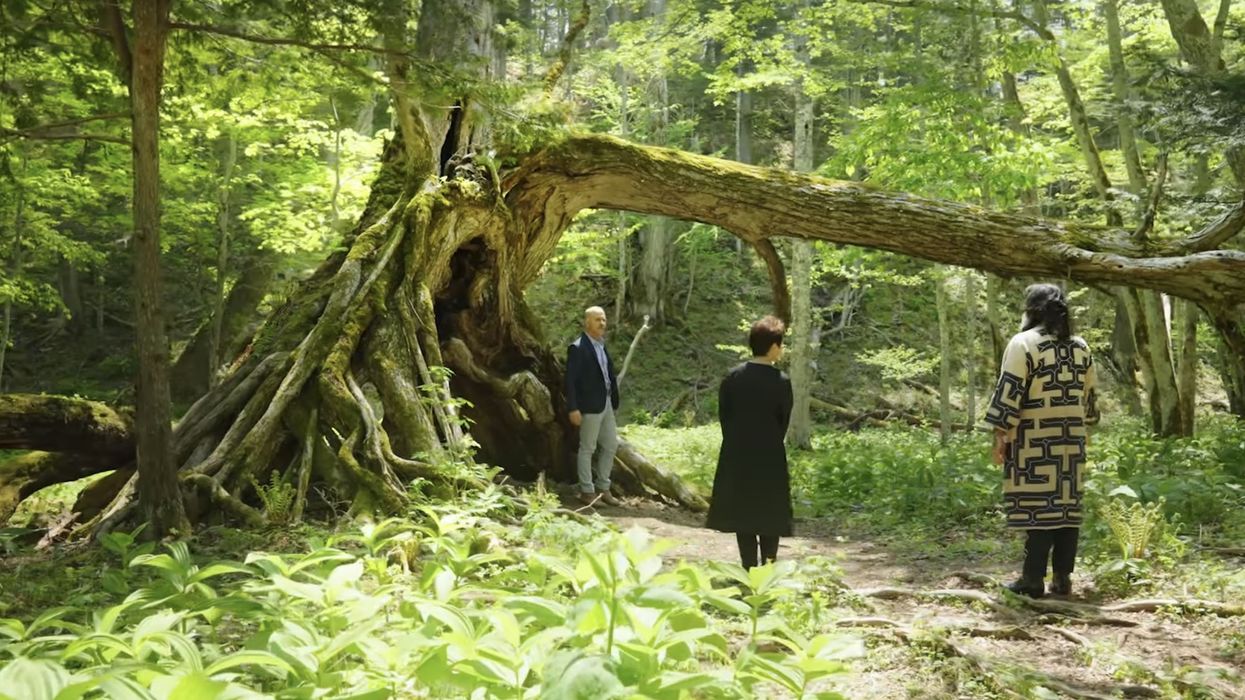Merging Creativity with the Sustainability of the Ainu People—Learn More at SSFF & ASIA!
The indigenous Ainu people can teach the world a great deal about living in harmony with nature.

Short Shorts Film Festival & Asia, now in its 24th year, just held an event sponsored and co-sponsored by the 2022 Japan Cultural Expo entitled "Discover Beauty Symposium: The Beauty of Ainu and Its View on Sustainability."
The Ainu people are indigenous to Japan and have a rich history of art, respect for natural beauty, and cooperation with the land.
Two experts involved in Ainu culture and art and on the cutting edge of film production, direction, and critique of films and art content were invited to discuss the origins of sustainability and its aesthetics as learned from the Ainu. The talk was held near the forest and lakeside of Lake Akan, a national park that is sacred to the Ainu people. The discussion touched on insight from Ainu culture that is essential for modern society to effectively achieve Sustainable Development Goals.
Watch the full talk below, then dive into the big takeaways!
The Guests
Panelists included Hideo Akibe and Satomi Igarashi, with moderation from Chuk Besher.
Akibe is the Ainu Performing Arts Creative Director. He learned Ainu dance and its techniques under the tutelage of Toko Nupuri, Toyojiro Yontaku, and others in the village of Kotan. In addition to running a folk craft store, he is a member of the Akan Ainu Craft Cooperative Association, the Akan Ainu Association, and the Akan Ainu Folk Culture Preservation Society, and contributes to the promotion of understanding of Ainu culture in various genres, including artistic activities, cultural preservation, and cultural lectures.
He also served as the director of the "Ainu Culture Creation Council" established for the purpose of promoting Ainu culture at the Tokyo 2020 Olympic and Paralympic Games, and successfully led the Ainu Culture Creation Performance.
Igarashi currently serves as Art Historian Curatorial Director at the Hokkaido Museum of Modern Art. Igarashi graduated from Hirosaki University in 1986, Faculty of Humanities, majoring in Japanese art history. She has served as deputy director of the Yoshitaro Mikishi Museum of Art and others in Hokkaido before assuming her current position.
She has curated numerous exhibitions on Ainu art and given numerous lectures on Ainu paintings and sculptures.
Besher was born in Kobe, Japan, a Japanese citizen of Russian heritage, the son of stateless Russian refugee parents. Besher is the creator/producer of an award-winning documentary series, Future is MINE, featuring Japanese women in their journey of self-empowerment. His current film, Ainu My Voice, has been nominated by multiple international film festivals.
Besher has a broad range of experience in communication and government spanning careers in politics, marketing, broadcasting, and government relations.
The Ainu and Sustainability
Akibe walked the group through a greeting and prayer for the land, asking for permission to enter the "home" of the forest in this instance. Igarashi said this felt like "a conversation" with the environment.
Akibe said it is perhaps a "fad" to follow the Ainu example now that sustainability and SDGs are at the forefront during our growing climate crises. Besher agreed.
Igarashi noted that nature plays a major part in Ainu art, whether its details in snowflake patterns or the shape of waves reflected in clothing. She also pointed out that the Ainu do not use "cold" materials like metal or porcelain, but instead rely on wood materials for many of their goods, even clothing.
Akibe said this is because wood is "most suited to a cold climate" where they live. He also pointed out that wood is naturally recycled.
"If wood breaks or burns, it can go back to earth," Akibe said.

"Before humans ever came to recognize it, the gods embodied sustainability," Akibe said.
The group agreed on the importance of SDGs, but Akibe emphasized the basic importance of restoring nature over just meeting numerical goals. Igarashi said we should continue learning and reconsidering while also keeping an eye on the big-picture goals.
"We are not the masters of our environment," Akibe said, "but we are given life by our environment."
Learn more about the Japan Cultural Expo here! And be sure to watch all the amazing short films available from SSFF & ASIA, as well as our coverage of this year's festival.
SSFF & ASIA 2022 is recognized by the Academy Awards as one of the largest international short film festivals in Asia. This year‘s theme is "Meta Cinema: Transcend, Discover, Begin."
The festival was founded in 1999 as the Short Shorts Film Festival (SSFF). In 2004, SSFF added a program for Asian short films and established Short Shorts Film Festival Asia with the support of the Governor of Tokyo. Now, the combination of the two festivals takes place annually in Tokyo as Short Shorts Film Festival & Asia, one of the largest short film festivals in Asia. It's happening now, from Thursday, April 28, to Thursday, June 30, 2022.












